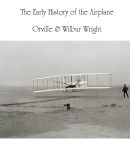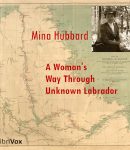Am 29. Juni 1871 stach das Schiff » Polaris« von New York unter Kapitän Franz C. Hall in See zur Erforschung des Hochnordens. Der Dampfer nahm seinen Weg über Neufundland an der Westküste Grönlands entlang durch den Smith-Sund und überwinterte in einer Bucht dieser Küste, die Hall »Polaris-Bay« taufte. Dort wurde ein Observatorium errichtet, und von dort aus unternahm man Schlittenreisen nach Süden und Norden. Hall starb nach Rückkehr von einer solchen Fahrt am 8. November 1871. Im August 1872 mußte infolge Kohlenmangels und eines Lecks die Heimfahrt angetreten werden. Am 15. Oktober erlitt die »Polaris« Schiffbruch. Ein Teil der Besatzung, 14 Mann, blieb beim Wrack zurück und baute eine Hütte, »Polaris-Haus«, für den Winter; der andere Teil wurde von einem Eisfelde nach Süden getrieben, auf das man in der Voraussicht des Schiffbruches schon eine Nothütte, alle Boote, viele Geräte, Waffen und Proviant für die gesamte Mannschaft gebracht hatte. Auf der Scholle befanden sich der Meteorologe Friedrich Meyer, der Navigationsgehilfe Tyson, der Koch, der Steward, sechs Matrosen und zwei Eskimofamilien, bestehend aus zwei Männern, Hans und Joseph, zwei Frauen, drei Mädchen im Alter von drei, acht und zehn Jahren, einem sechsjährigen und einem am 12. August geborenen Knaben. – Zusammenfassung von Availle Part of an account of the last voyage of the ship Polaris. After the shipwreck, 19 members of the crew were trapped on an ice floe, slowly moving south. They were rescued after 196 days on sea. [chương_files]









